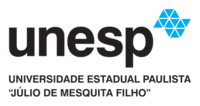On walking, knowing and learning: the subject walking and the educational process
DOI:
https://doi.org/10.18675/1981-8106.v31.n.64.s15100Keywords:
Walk. Experience. Knowledge.Abstract
The article deals with the relationship between walking and learning, contrasting educational processes that occur predominantly spontaneously through body experience, with the formalities of teaching methods in school education, where conceptual knowledge prevails at the expense of the knowledge acquired by life experiences. The practice of walking, inserted in an educational context, expresses, therefore, the subject walking, that is, the one who experiences the world walking on foot and learns it through the perceptions of existence; then he becomes the same, in a subject knowing the environment in which he lives. The theoretical framework obtained by the bibliographic survey points out that by walking a kind of knowledge is reached that does not depart from reality and that gives meaning to existence and meaning to the world in which one lives, and gives meaning to knowledge beyond the conceptual universe. It is a concrete knowledge, mediated by the experience of existing, which is done walking, in a real, lived world. It is up to school education to explore the didactic and pedagogical resources that the practice of walking offers as an effective tool for a continuous learning process linked to existence.
References
ABBAGNANO, N. Dicionário de Filosofia. 5. ed. São Paulo: Martins Fontes, 2007.
AGUIAR, C. M. Educação e Saberes: correlação com a natureza e a cultura. Rio de Janeiro: Guanabara Koogan, 2010.
BERGER, J. Modos de ver. Rio de Janeiro: Rocco, 1999.
BICUDO, M. A. V. e ESPÓSITO, V. H. C. (org.). Pesquisa qualitativa em educação. Piracicaba: UNIMEP, 1994.
BRANDÃO, C. R. O que é Educação? São Paulo: Brasiliense, 1981.
BRUHNS, H. T. A busca pela natureza: turismo e aventura. São Paulo: Manoel, 2009.
CANGUILHEM, G. O conhecimento da vida. Rio de Janeiro: Forense Universitária, 2012.
FREINET, C. Ensaio de Psicologia Sensível. São Paulo, Martins Fontes, 1998.
GONÇALVES, M. A. S. Sentir, pensar, agir: corporeidade e educação. Campinas: Papirus, 1994.
INGOLD. T. O Dédalo e o labirinto: caminhar, imaginar e educar a atenção. Horizontes Antropológicos, Porto Alegre, ano 21, n. 44, p. 21-36, jul./dez. 2015.
INGOLD. T. Estar vivo: ensaios sobre movimento, conhecimento e descrição. Rio de Janeiro: Vozes, 2015.
INGOLD. T. Da transmissão da representação à educação da atenção. Educação, Porto Alegre, v. 33, n. 1, p. 6-25, jan./abr. 2010.
KUNZ, E. Transformação didático-pedagógica do esporte. Ijuí/RS: Unijuí, 1994.
KUNZ, E; TREBELS, A. H. Educação física crítico-emancipatória. Ijuí/RS: Unijuí, 2006.
LE BRETON, D. Antropologia dos Sentidos. Petrópolis, RJ: Vozes, 2016.
LE BRETON, D. Éloge de la marche. Éditeur: Métailié, 2000.
MACEDO, D. Para além de uma educação domesticadora. Entrevista com Noam Chomsky. Currículo sem Fronteiras, v. 4, n. 1, p. 5-21, jan./jun. 2004.
MAFFESOLI, M. O conhecimento comum: introdução à sociologia compreensiva. Porto Alegre: Sulina, 2010.
MARTIS, J.; BICUDO, M. A. V. Estudos sobre existencialismo, fenomenologia e educação. São Paulo: Centauro, 2006.
MERLEAU-PONTY, M. Fenomenologia da percepção. São Paulo: Martins Fontes, 1994.
NÓBREGA, T. P. Corporeidade e educação física: do corpo-objeto ao corpo-sujeito. 3. ed. Natal: EDUFRN, 2009.
SCHUTZ, A. Sobre fenomenologia e relações sociais. Petrópolis: Vozes, 2012.
SILVA, A. M.; DAMIANI, I. R. As práticas corporais na contemporaneidade: pressupostos de um campo de pesquisa e intervenção social. In: SILVA, A. M.; DAMIANI, I. R. (org.) Práticas Corporais: Gênese de um movimento investigativo em Educação Física. Florianópolis: Nauemblu Ciência & Arte, 2005.
Downloads
Published
How to Cite
Issue
Section
License
Authors who publish in this journal agree to the following terms:
a) Authors assign copyright to the journal, with the work simultaneously licensed under the Creative Commons Attribution License that allows sharing of the work with acknowledgment of authorship and publication in this journal.
b) The policy adopted by the Editorial Committee is to assign copyright only after a period of 30 months from the date of publication of the article. After this time, authors interested in publishing the same text in another work must send a letter to the Editorial Committee requesting the release of the assignment of copyright and wait for a response.
c) This journal provides public access to all its content, since this allows greater visibility and reach of published articles and reviews. For more information on this approach, visit the Public Knowledge Project, a project that developed this system to improve the academic and public quality of research, by distributing OJS as well as other software to support the public access publication system to academic sources. The names and email addresses on this website will be used exclusively for the purposes of the journal and will not be available for other purposes. This journal provides open any other party  This work is licensed under a Creative Commons License
This work is licensed under a Creative Commons License










